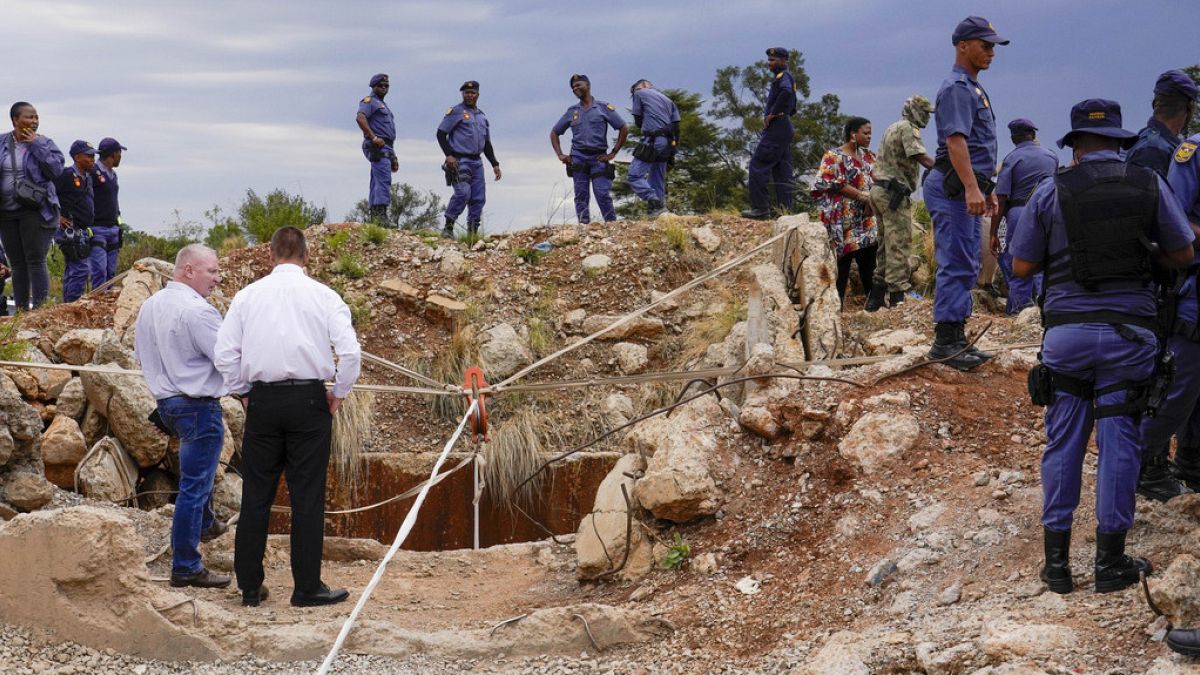German Chancellor Olaf Scholz has dismissed demands from US President-elect Donald Trump that Germany and other NATO allies increase defense spending to at least 5% of gross domestic product (GDP).
"Five percent would be over €200 billion ($204 billion) per year — the federal budget is not even €500 billion," Scholz said at a campaign event in the western German city of Bielefeld on Monday.
"That would only be possible with massive tax increases or massive cuts to many things that are important to us," he said, insisting that he would not countenance cuts to pensions, local government or transport infrastructure.
Germany only reached the current NATO target of 2% of GDP last year, the first time it had done so since the end of the Cold War, and Scholz promised that the country would maintain that level.
"I guarantee that we will continue to spend 2% of our economic output on defense," he said. "Anyone who says that's not the way to go must also say where the [extra] money will come from."
Can NATO survive without the United States?
During his famous "Zeitenwende" (historical turning point) speech to the German parliament in February 2022 in the immediate aftermath of Russia's full-scale invasion of Ukraine, Scholz announced a €100bn special fund for Germany's own underfunded and underequipped armed forces, known as the Bundeswehr.
But German defense expenditure remains restricted by a tight budget situation and strict constitutional rules regarding deficit spending.
Pistorius: '2% can only be the beginning'
Nevertheless, German Defense Minister Boris Pistorius contradicted Scholz somewhat by saying that military spending should increase.
"Increasing the war capability of the Bundeswehr in the coming years is the top priority of the hour," he said in the central German city of Kassel, where he was handing over the first of dozens of advanced new German-built howitzers to Ukraine.
 German Defense Minister Boris Pistorius speaking at the handover of dozens of howitzers to UkraineImage: Michael Kappeler/dpa/picture alliance
German Defense Minister Boris Pistorius speaking at the handover of dozens of howitzers to UkraineImage: Michael Kappeler/dpa/picture alliancePistorius, of Scholz's Social Democratic Party (SPD), has been topping polls as one of the most popular German politicians and was recently tipped to replace Scholz as the party's chancellor candidate for February's snap elections, but withdrew.
"We will continue on this path in 2025," he continued. "And we know that in the following years, we will have to invest even more in our security. Two percent can only be the beginning. It will have to be significantly more if we want to continue at the pace and to the extent that we have to."
Poland: Trump demands are a 'wake-up call'
Other key NATO figures have also expressed tacit support for Trump's suggestion, even if 5% may not be feasible in the immediate term.
In an interview with the British Financial Times newspaper, published on Mondy, Polish Defense Minister Wladyslaw Kosiniak-Kamysz said Trump's demands were an "important wake-up call" for NATO members.
"He should not be criticized for setting a really ambitious target because otherwise there will be some countries that will continue to debate whether more spending is really needed," he said.
Poland is NATO's biggest contributor in terms of relative defense spending, committing around 4.2% of GDP to its military in 2024, a figure which Warsaw intends to increase to 4.7% in 2026. The United States itself "only" spends around 3.37% of GDP on defense.
Other leading contributors include the Baltic States Estonia (3.43%), Latvia (3.15%) and Lithuania (2.85%) and Finland (2.41%) which, like Poland, share borders either with Russia, Russian exclave Kaliningrad or Russian ally Belarus.
Is NATO really threatening Russia?
mf/lo (dpa, AFP)

 By Deutsche Welle (Europe) | Created at 2025-01-13 17:32:10 | Updated at 2025-01-14 11:54:55
18 hours ago
By Deutsche Welle (Europe) | Created at 2025-01-13 17:32:10 | Updated at 2025-01-14 11:54:55
18 hours ago







